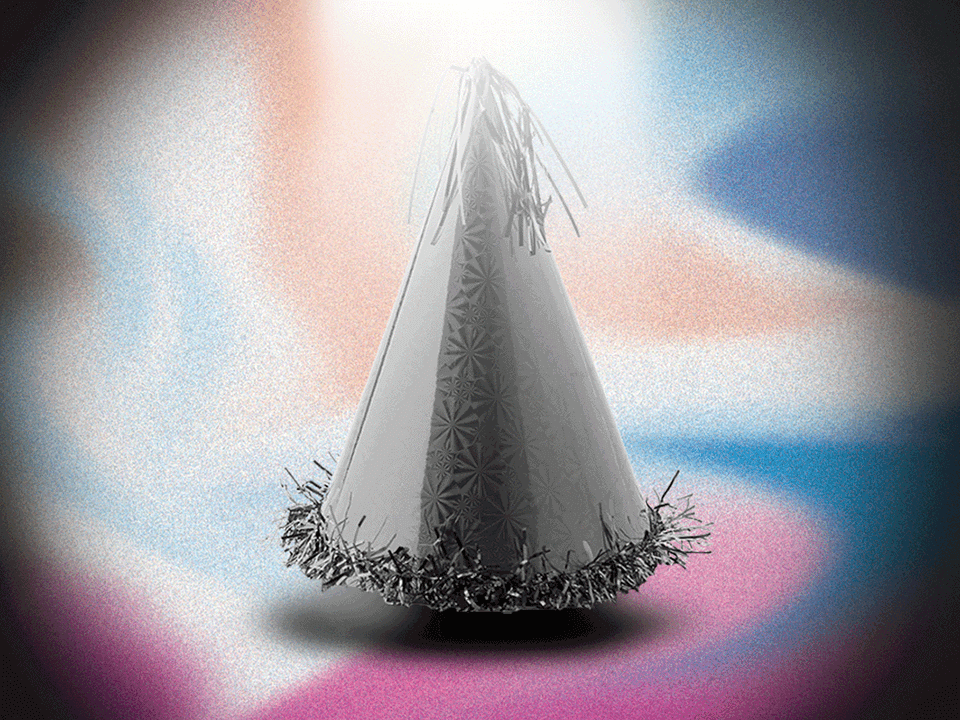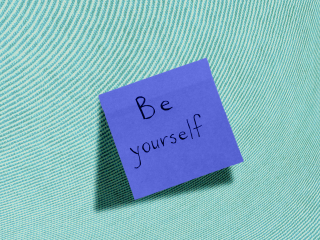So You Weren’t Invited—Here’s How to Not Spiral (or Crash the Party)
A psychologist’s guide to FOMO.
POV: You’re scrolling through Instagram when you come across a picture that your friend just posted. In it you see them, along with five other friends, all posed with their drinks at dinner. You like the picture, but you're obviously feeling left out. Your friends apparently had a party and they didn’t invite you? What the actual eff.
The best way you can describe your feelings is as follows: FOMO. You get the sense that everyone is hanging out without you, and it’s lonely as hell. You don’t know whether your lack of invitation was intentional or a simple miscommunication, but either way you feel like you’re a loser with no friends—even though you’re not.
That said, losing your cool over this situation or ruminating on it is normal. Whether you found out about the thing that happened without you via group chat, Insta, or a friend who let it slip, the key is to process your feelings without letting them get you down. Here’s how to do exactly that.
Step 1: Enjoy this sweet, sweet validation.
Listen, you’re not wrong for feeling left out. “We’re social beings. We all want to have a sense of belonging, we want to be a part of a group, and we want to be included,” says clinical psychologist Janet Brito, PhD, founder of the Hawaii Center for Sexual and Relationship Health. That’s what relationships are for, no?
So, if you have a friendship with someone and you feel like you missed out on an invite to their social gathering, it’s OK to feel upset and take it personally.
Step 2: Consider why you’re actually upset.
Odds are, if you’re using Instagram and TikTok, of course you’re going to have FOMO. “Everyone is only portraying the best parts. It gives the impression that everyone else is happy and you’re not,” Dr. Brito says. So take a step back and think about whether you’d actually make it to that event—or if you’d honestly want to be there. It’s possible that you’re more upset about seeing the highlight on IG where everyone looked like they were having the most fun without you. If that’s the case, try to remember that there’s always more to the story than what you get in a caption (like the two hours of traffic it took to get to the restaurant or the drama that you wouldn’t have wanted to deal with anyway). Giving yourself a quick reality check might help put things into perspective.
Step 3: Call out those mean voices in your head.
You don't really know why you weren’t invited, Dr. Brito says. Be open to the idea that it might’ve been a last-minute get-together or that your friend just wants private time with their other friends. Trust: It could have legit nothing to do with you.
But when thoughts like I’m not good enough or I have no friends or I’m a bad person are running through your mind, use this as an opportunity to get a little curious about your reaction. Ask yourself, “Where is this voice coming from?” Dr. Brito suggests. From there, question whether these thoughts are true. Do you have evidence that you’re actually a terrible human without any friends? Probably not! “Be compassionate. Talk to yourself the way you would talk to your best friend or a younger child,” Dr. Brito explains. Remember that these thoughts and feelings will pass.
Step 4: Give these friends a quick lil eval.
Is this non-invite a red flag? It might be! That’s especially true if you’ve had an iffy feeling about those friends as of late. “Maybe this is an opportunity for you to separate yourself from them because they’re mean to you,” Dr. Brito says. If this person only makes you feel bad when you're with them, you might want to take a closer look at those feelings post-missed invite.
Step 5: Do something nice for yourself.
Turn off social media, put your phone away, go on a walk, pick up a book, get in the bath, do whatever makes you feel safe and taken care of. Creating replacement behaviors for spiraling can make you feel better about yourself, Dr. Brito says. Once you’ve identified an activity that works for you, try to make time for that more often. Over time, it can help your mood and self-worth improve no matter what events you miss out on.
Step 6: Maybe have a convo about it (but also maybe don’t).
Whether you bring up The Event and your absence from it depends on how close you are with the person who left you out. If it’s casual, like a coworker, maybe it’s not worth confronting them about it, especially if it’s going to impact your day-to-day interactions, Dr. Brito says. If you’re tight with the person who left you out, and you feel like you can talk through it without a major fallout, you can say something along the lines of, “I heard you planned a group dinner and I wasn't invited and I felt bad. Did I do anything to upset you? Should we talk about this?” If they’re straightforward with you, keep an open mind. A true relationship requires honesty, even if it’s uncomfortable at times. But if they’re making excuses and avoiding your question altogether? That’s not a great look for a close friendship.
Step 7: Have a little self-reflection moment.
If it seems like you were intentionally left out and you feel like you’re in a mentally good space to reflect on that, consider taking some time to think about why that might be. Heads up: This might not feel great, so it’s not a bad idea to work through this with the help of a mental health professional or a close friend or family member whose opinion you value. Consider (with your journal or with that trusted someone) how you show up socially and if there might be any conflicts in this social group that you’ve been ignoring. “Do you tend to take up a lot of space? Are you pretty demanding? Do you need a lot of care? If you're saying yes to all this, maybe that's why they didn’t invite you,” Dr. Brito explains. It’s possible there’s some stuff you need to work through in these adult friendships—but this does not mean you’re a bad person. The fact that you’re self-assessing in the first place is a great sign that you’re someone who cares about others.
Step 8: Think about finding professional support.
If you find yourself stuck in this pattern of feeling left out or on the fringe of your social interactions often, you might want to consider finding a mental health professional to talk to about your relationships. With a therapist, you can talk about the feelings you continue to experience and come up with healthy coping skills to deal.
Wondermind does not provide medical advice, diagnosis, or treatment. Any information published on this website or by this brand is not intended as a replacement for medical advice. Always consult a qualified health or mental health professional with any questions or concerns about your mental health.




